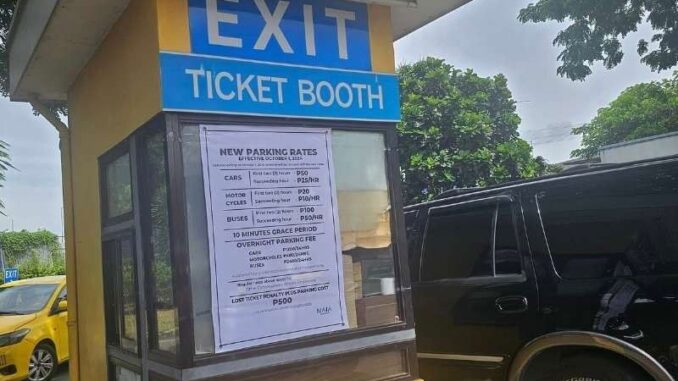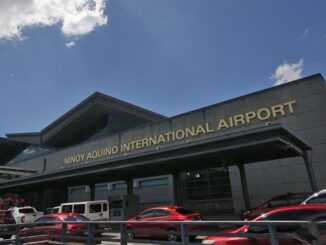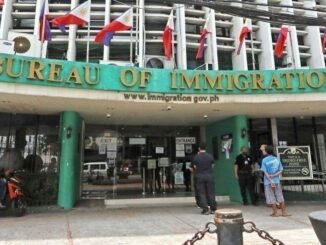
MANILA, Philippines — Parking fees at the Ninoy Aquino International Airport (NAIA) have gone up by as much as four times, in a first of many rate hikes for the now privately run gateway.
New NAIA Infrastructure Corp. (NNIC) yesterday started collecting higher parking rates, particularly affecting travelers who leave their vehicles at the airport overnight.
In particular, the cost of overnight parking quadrupled from P300 to P1,200 for cars. Motorcycles and buses are now charged P480 and P2,400, respectively.
On top of this, parking fees for the first two hours increased to P50 for cars, P20 for motorcycles and P100 for buses.
Staying beyond the allowed period will incur additional rate per hour of P25 for cars, P10 for motorcycles and P50 for buses.
“The adjustments are necessary to ensure continued maintenance and improvements of airport facilities. We appreciate your understanding and support as we implement these changes,” the NNIC said.
The NNIC also removed the special parking fees enjoyed by employees of the airport, forcing them to pay the regular rates.
The rates used to also cover airline personnel who support passenger operations, including pilots, who leave their cars at the NAIA for hours while they are up in the air.
The new parking fees comply with the adjusted rates that NNIC is allowed to apply as part of its concession to operate and maintain the NAIA.
In September, the Manila International Airport Authority (MIAA) issued Revised Administrative Order (AO) 1, Series of 2024, authorizing the new rates under private control.
The AO increased airport fees, from passenger service charges (PSC) to landing and takeoff rates.
The PSC, for instance, will go up by P950 for foreign departures and by P390 for local flights starting September 2025.
The order also hiked takeoff rates to as much as $1,794 for foreign carriers and P34,617 for domestic airlines in the first year of the concession.
In September, the San Miguel Corp.-led NNIC took over the operations and maintenance of the NAIA to pursue its P170.6-billion rehabilitation.
NNIC will operate NAIA for 15 years, extendable by 10 years, depending on how well its group would perform. — Rudy Santos





Be the first to comment